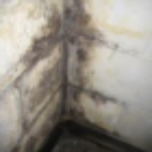Mold
The inspector will perform:
- a non-invasive, visual examination of the readily accessible, visible and installed systems and components of the building, as outlined in the IAC2 Mold Inspection Standards of Practice;
- moisture, temperature and humidity measurements;
- at least three air samples (one indoor and two outdoor); and
- possible additional surface samples or in-wall samples at areas of concern.
The inspector will report:
- moisture intrusion;
- water damage;
- musty odors;
- apparent mold growth;
- conditions conducive to mold growth;
- the results of a laboratory analysis of all mold samples taken
- any system or component listed in the Standards of Practice that was not visually examined, and the reasons they were not inspected.
A Complete Mold Inspection includes:
- a visual examination of the entire building, its systems and components;
- moisture, temperature and humidity measurements; and
- taking mold samples.
The difference between a Complete Mold Inspection and a Limited Mold Inspection is a limitation of the non-invasive, visual examination of the building. The Limited Mold Inspection does not include a visual examination of the entire building, but is limited to a specific area of the building identified and defined by the inspector.
Why is mold growing in my home?
Molds are part of the natural environment. Outdoors, molds play a part in nature by breaking down dead organic matter such as fallen leaves and dead trees, but indoors, mold growth should be avoided. Molds reproduce by means of tiny spores; the spores are invisible to the naked eye and float through outdoor and indoor air. Mold may begin growing indoors when mold spores land on surfaces that are wet. There are many types of mold, and none of them will grow without water or moisture.
Can mold cause health problems?
Molds are usually not a problem indoors, unless mold spores land on a wet or damp spot and begin growing. Molds have the potential to cause health problems. Molds produce allergens, irritants, and in some cases, potentially toxic substances.
Allergic reactions to mold are common and include hay fever-type symptoms, such as sneezing, runny nose, red eyes, and skin rash. Molds can also cause asthma attacks in people with asthma who are allergic to mold.
How do I get rid of mold?
It is impossible to get rid of all mold and mold spores indoors, but indoor mold growth can be controlled by controlling moisture indoors. If there is mold growth in your home, you must clean up the mold and also fix the water problem. If you clean up the mold, but don't fix the water problem, the mold problem most likely will return.
Who should do the cleanup?
If the moldy area is less than about 10 square feet, you can probably handle the job yourself. However:
If there has been a lot of water damage, and/or mold growth covers more than 10 square feet, consult the EPA's material on mold. Although focused on schools and commercial buildings, this document is applicable to other building types.
If you choose to hire a contractor (or other professional service provider) to do the cleanup, make sure the contractor has experience cleaning up mold. Check references and ask the contractor to follow the recommendations in EPA's Mold Remediation in Schools and Commercial Buildings, or the guidelines of the American Conference of Governmental Industrial Hygenists .
If you suspect that the heating/ventilation/air conditioning (HVAC) system may be contaminated with mold, consult the EPA information center before taking further action. Do not run the HVAC system if you know or suspect that it is contaminated with mold - it could spread mold throughout your home.
If the water and/or mold damage was caused by sewage or other contaminated water, then call in a professional who has experience cleaning and fixing buildings damaged by contaminated water.
If you have health concerns, consult a health professional before starting cleanup.
For more information, read the EPA's A Brief Guide to Mold.
The above information is provided as a public service by the Environmental Protection Agency for educational purposes.






